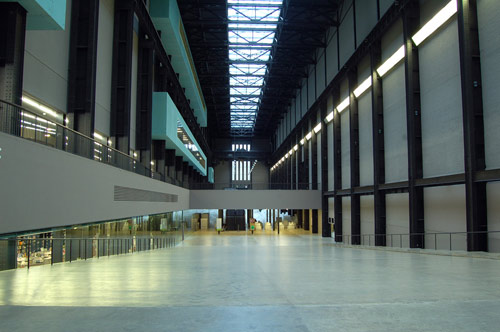Walking across the Millenium Bridge tonight (well, it was more like jogging to get out stiffness after three hours as a groundling), I was hit by one of those occasional yet profound moments of realization that I was in London. These moments are few and far between, but when you get a moment to step back and look across the Thames and the glowing lights of the city with St. Paul’s dome looming above you, for example, these realizations can hit you like a ton of bricks.
Similar and not unrelated to the “we’re not in Kansas anymore” feelings are the somewhat more frequent instances of understanding the true amount of history behind London and England themselves. In the past few days, I have seen Stonehenge, Roman baths, Medieval cathedrals, prisons, and fortresses, a Shakespeare play, the Jane Austen Centre, the Cabinet War Rooms, and the Tate Modern. The sheer number of years represented by those few landmarks and events is mind-boggling and can serve to disorient the visitor (especially when the visitor comes from a country that’s only approximately 200 years old). I find it interesting to note that I have an almost reverse levels of admiration for the feats and landmarks viewed: I found it utterly astonishing that ancient peoples were able to move stones weighing many tons across empty fields and then arrange them in circular patterns, but I was unimpressed and even disgusted by the artwork of Paul McCarthy digitally projected on a wall with cutting-edge technology at the Tate Modern. I found the stark, bleak nature of the Cabinet War Rooms and the hard work done there to show the strength and resilience of a country under siege, but I found the crown jewels and the grandeur of the monarchy, both past and present, at the Tower of London to be grandiose and over-the-top for a country that is notorious for a “stiff upper lip” and a “keep calm and carry on” sort of mentality.
I suppose what I’m trying to get across is that the sheer nature of hundreds and thousands of years of history (encompassing invasion, multiple great civilizations, and admirable resilience) on a single, small island weighs heavy on a mind that comes from a vast, expansive country with little history at all that can’t even get a healthcare system sorted out. As we now know, you cannot dig down in London without finding something Roman, Medieval, or even prehistoric, yet they still build on and up, layering the present upon the past, and preserving and commemorating as best they can. In my mind, England is a country that seems to be mostly defined by its past, whereas even though America has a shorter history, it seems mostly defined by its present, including its current political standings, fads and trends, and financial influence. London’s ever-changing face and composition always seems to have the same resilient heart, rooted in thousands of years of invasions, shifts in power, influxes of people, devastating disasters, and new technologies, and it appears able to carry on through anything.

